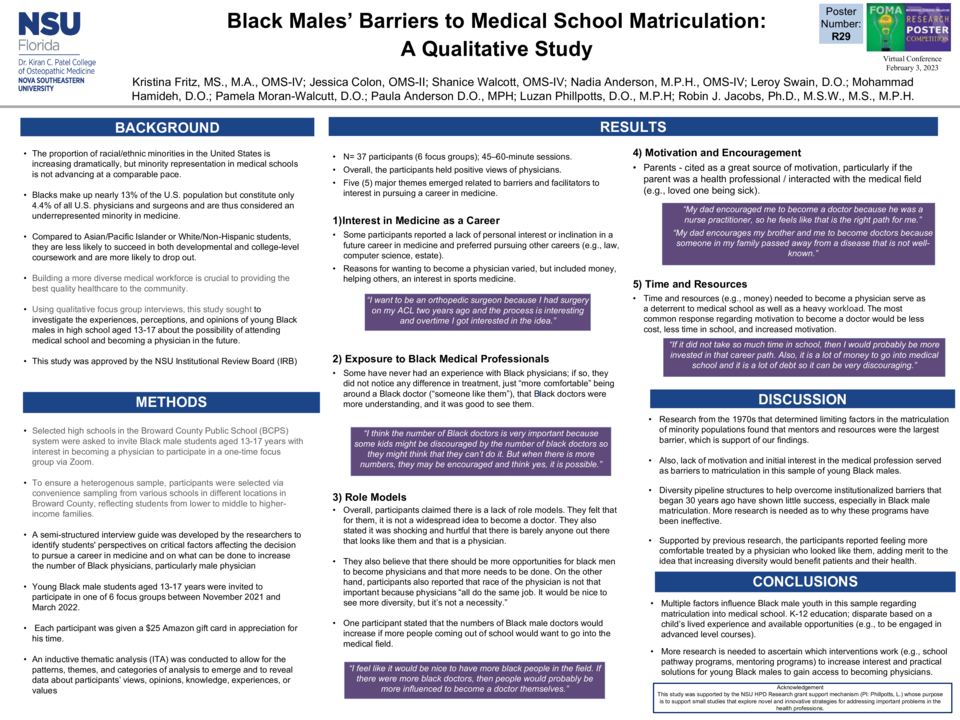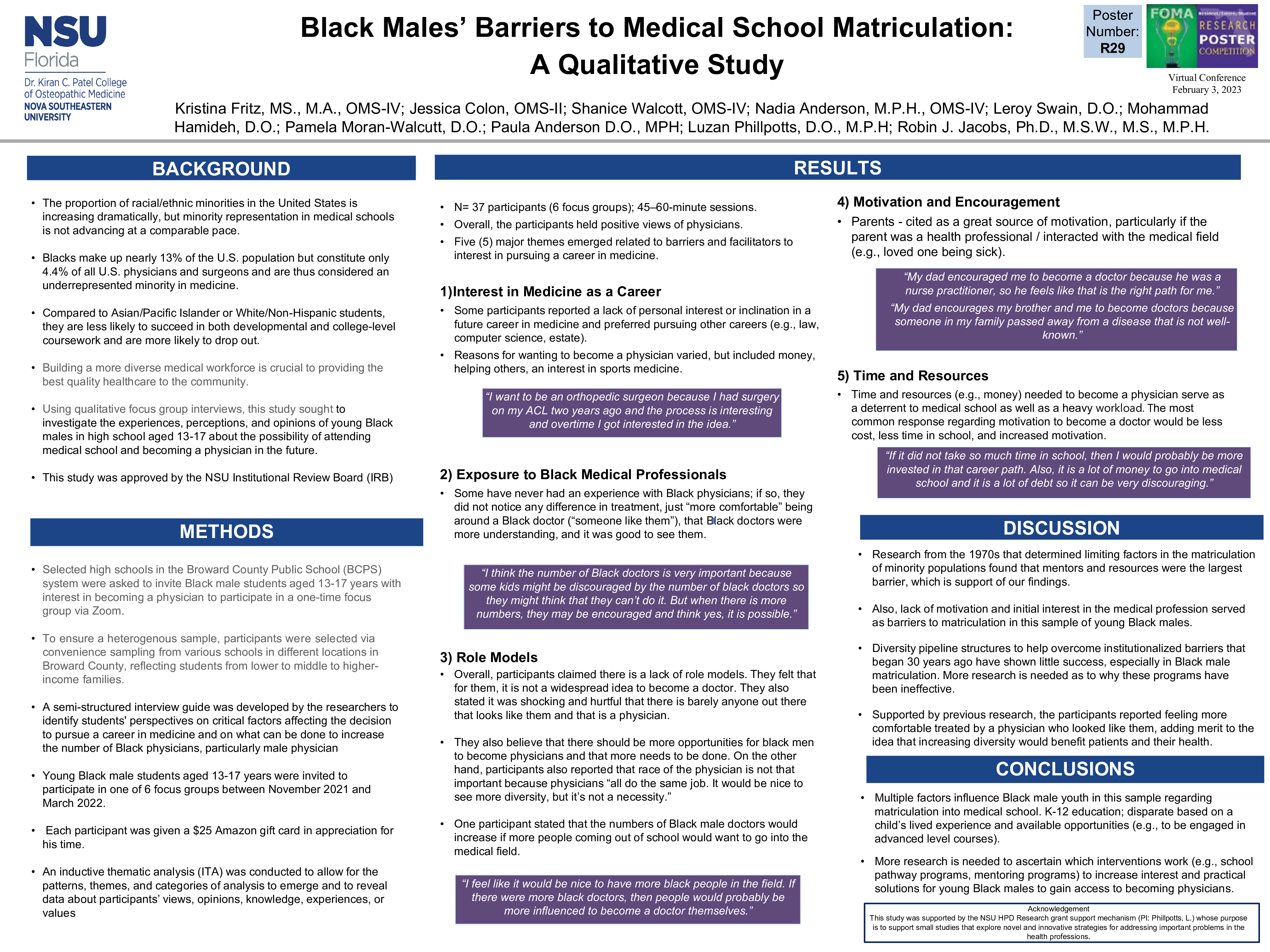Abstract
Background: The proportion of racial/ethnic minorities in the United States (U.S.) is increasing, but minority representation in medical schools is not advancing comparably. Blacks make up nearly 13% of the U.S. population but constitute only 4.4% of all U.S. physicians. While Black men have been reported to have the highest mortality rate and shortest life expectancy among any other demographic group in the U.S., studies demonstrate that Black patients may have better health outcomes when treated by Black doctors. Despite efforts to increase the enrollment of Black students into medical school, matriculation remains significantly low when compared to other groups. To our knowledge, this is the only study using focus groups with young Black male high school students conducted to investigate the beliefs and attitudes and perceived facilitators and barriers toward future matriculation to higher education, college and possibly medical school.
Objective: This study sought to investigate the experiences, perceptions, and opinions of young Black males aged 13-17 about the possibility of attending higher education and becoming a physician in the future to help direct interventions.
Methods: A qualitative study was conducted using focus groups. Thirty-two Black male students aged 13-17 years from 5 high schools in Broward County participated in 1 of 6 focus groups held via Zoom in November 2021 and March 2022. A heterogenous sample was created by sampling from various schools throughout Broward County, representing students from low to high socioeconomic backgrounds. A semi-structured interview guide, developed by the researchers, was used to explore students' perspectives. An inductive thematic analysis (ITA) was conducted to allow for the patterns, themes, and categories of analysis to emerge and to reveal data about participants’ views, opinions, knowledge, experiences, or values. Participants were given a $25 gift card in appreciation of their time. This study was approved by the NSU- IRB.
Results: Five major themes emerged from the 6 focus groups with 32 young Black males related to barriers and facilitators to their interest in going to college and possibly pursuing a career in medicine including 1) having an interest in medicine as a career, 2) being provided contact with Black medical professionals, 3) identifying positive role models, 4) receiving motivation and encouragement, and 5) the perception of time and resources. Of those participants that reported interest in a future medical career, reasons for wanting to become a physician varied but included money and altruism. Participants largely did not report a difference in treatment based on the race of the physician, however many had not had an experience with a Black physician. Those that did state they felt more comfortable and “understood” during the encounter with the Black physician.
Conclusion: Multiple factors seem to influence Black male high school students in this sample regarding matriculation into medical school. K-12 education is disparate based on a child’s lived experience and available opportunities (e.g., to be engaged in advanced level courses). More research is needed to gather evidence regarding which interventions work and which do not (e.g., school pathway programs, mentoring programs) to increase not only interest but real opportunities for young Black male students to enter the medical profession.





